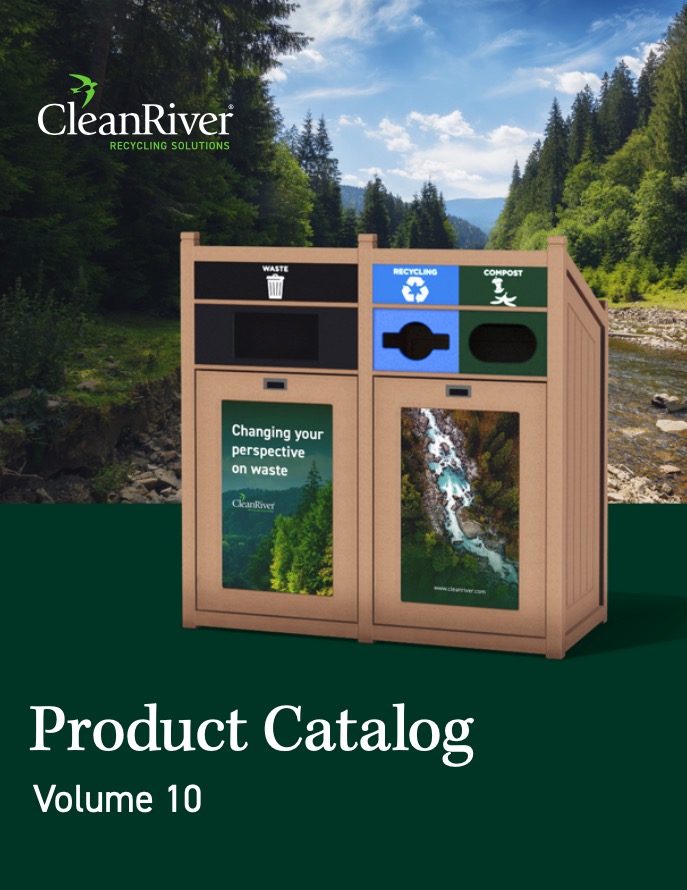Share
As businesses increasingly prioritize sustainability, many are exploring ways to reduce waste and minimize their environmental footprint. While the benefits of recycling are clear, some businesses hesitate to adopt comprehensive recycling programs due to concerns about costs. However, a detailed cost-benefit analysis often reveals that the long-term financial savings and operational efficiencies outweigh the initial investments.
In this blog, we’ll explore how comprehensive recycling programs not only help businesses meet their sustainability goals but also deliver measurable cost savings. From reducing waste disposal costs to improving brand reputation, recycling programs offer significant benefits that impact the bottom line.
The True Cost of Waste
Waste management is a hidden expense for many businesses. From the costs of waste hauling and landfill fees to the environmental toll of excessive waste, poor waste management can quickly become a financial burden. Here's how waste can impact a business:- Waste Hauling and Disposal Fees: Businesses pay for the waste they produce, often through fixed fees or per-ton hauling costs. Sending large volumes of waste to landfills not only costs money but contributes to environmental degradation.
- Lost Revenue from Recyclable Materials: Many recyclable materials—such as cardboard, paper, plastics, and metals—can generate revenue when properly sorted and sold to recyclers. By not recycling, businesses lose the opportunity to monetize these materials.
- Regulatory Compliance Costs: Increasingly, governments are introducing stricter waste management regulations. Businesses that fail to meet recycling and waste diversion requirements can face fines or penalties.
The Financial Benefits of Recycling Programs
While implementing a comprehensive recycling program may require initial investment in infrastructure, education, and logistical adjustments, the long-term financial benefits far outweigh the costs. Here’s how recycling programs can improve your bottom line:1. Reduced Disposal and Hauling Costs
Recycling programs reduce the volume of waste sent to landfills, which directly lowers hauling and disposal costs. By diverting recyclable materials from general waste streams, businesses can reduce the frequency and size of waste pickups, leading to cost savings. In many cases, waste disposal services charge based on the volume or weight of the waste. When a business implements a recycling program, a large portion of the waste stream can be diverted, resulting in fewer trips by waste haulers and reduced landfill fees. For example, businesses that implement comprehensive recycling programs can see up to a 50% reduction in their waste disposal costs. The savings accumulate quickly, turning what was once an expense into a financial advantage.2. Revenue from Recyclables
Many businesses don’t realize that recyclable materials can represent a valuable revenue stream. Cardboard, plastics, metals, and paper can be sold to recyclers who process these materials into new products. By separating recyclables and selling them to third-party buyers, businesses can offset the costs of their recycling programs—or even generate a profit. For example, in many parts of Canada, businesses can sell cardboard and other recyclables to recycling companies at competitive rates. Over time, these additional revenue streams can make a significant contribution to your overall budget.3. Enhanced Operational Efficiency
Comprehensive recycling programs encourage businesses to evaluate their waste management processes, often leading to greater operational efficiency. Recycling can help businesses identify wasteful practices, streamline resource usage, and improve processes. This efficiency doesn’t just reduce waste—it reduces the need for materials and supplies, saving money on the front end. By reducing the amount of waste generated, businesses can lower costs related to raw material purchasing and production inefficiencies. In turn, this leads to a more sustainable and financially sound operation.4. Improved Brand Reputation and Customer Loyalty
A business’s commitment to sustainability plays an increasingly important role in shaping public perception and brand reputation. Consumers are more likely to engage with brands that demonstrate environmental responsibility, and recycling programs are a visible way for businesses to showcase their green initiatives. By promoting your business’s recycling efforts, you can strengthen relationships with eco-conscious customers, improve your corporate social responsibility (CSR) profile, and gain a competitive edge. For example, studies show that nearly 70% of consumers are willing to pay more for products and services from businesses that are environmentally friendly. A well-publicized recycling program can enhance customer loyalty and lead to increased revenue.5. Regulatory Compliance and Avoiding Fines
Governments across the world are introducing stricter waste disposal and recycling regulations to address growing environmental concerns. Comprehensive recycling programs ensure that businesses comply with these regulations, helping them avoid costly fines and penalties. For example, in many Canadian provinces, businesses are required to meet minimum waste diversion rates. Failure to comply with these regulations can result in penalties. By implementing a robust recycling program, businesses not only meet regulatory requirements but also stay ahead of evolving environmental standards.Assessing the Costs of a Recycling Program
While the benefits of comprehensive recycling programs are substantial, it’s important to assess the initial costs involved. Here are some of the primary expenses businesses may incur:- Infrastructure Costs: Implementing a recycling program often requires investing in recycling bins, signage, and waste sorting equipment. However, these costs are typically one-time expenses, and businesses can work with companies like CleanRiver to create customizable recycling solutions that suit their specific needs.
- Employee Training and Education: For a recycling program to succeed, employees need to be educated on how to properly sort waste and use the recycling infrastructure. While this may require time and resources upfront, ongoing education ensures higher participation rates and greater waste diversion success.
- Logistical Adjustments: Businesses may need to adjust their waste collection schedules or partner with local recyclers to ensure that materials are properly sorted and collected. These adjustments can incur some costs but are essential for maximizing the benefits of a recycling program.

